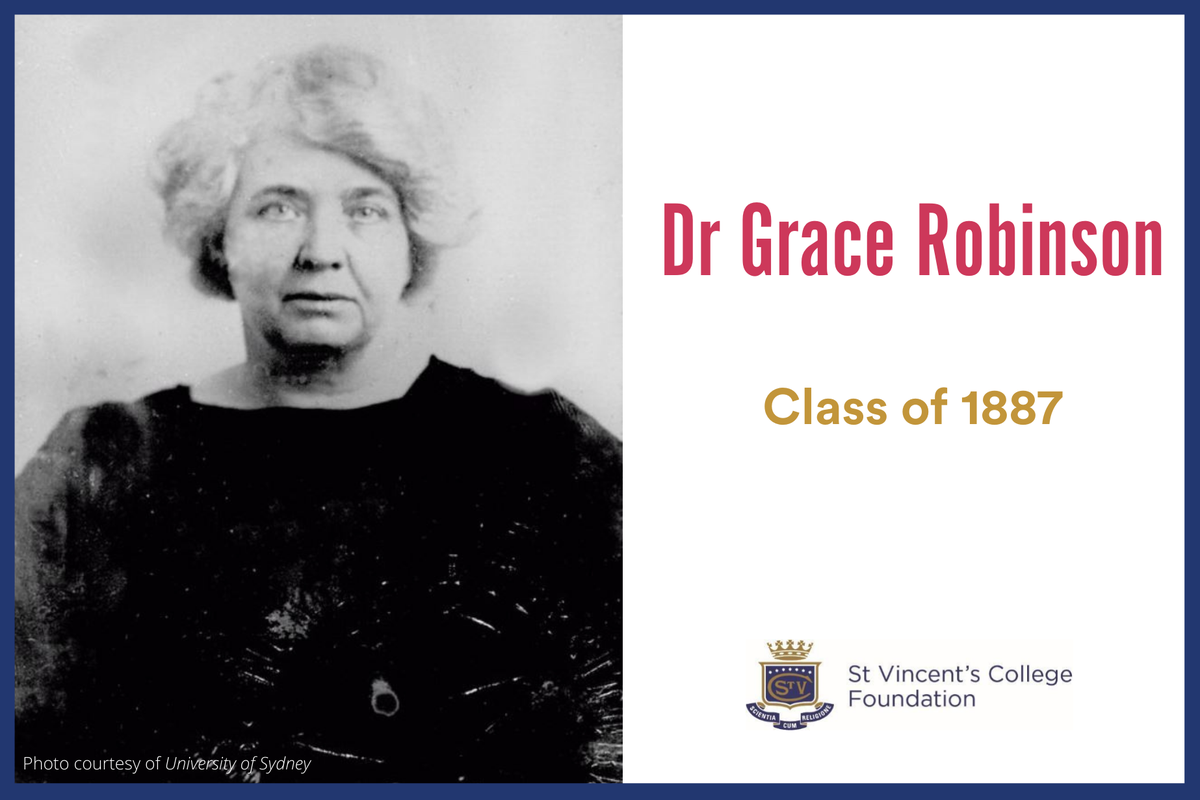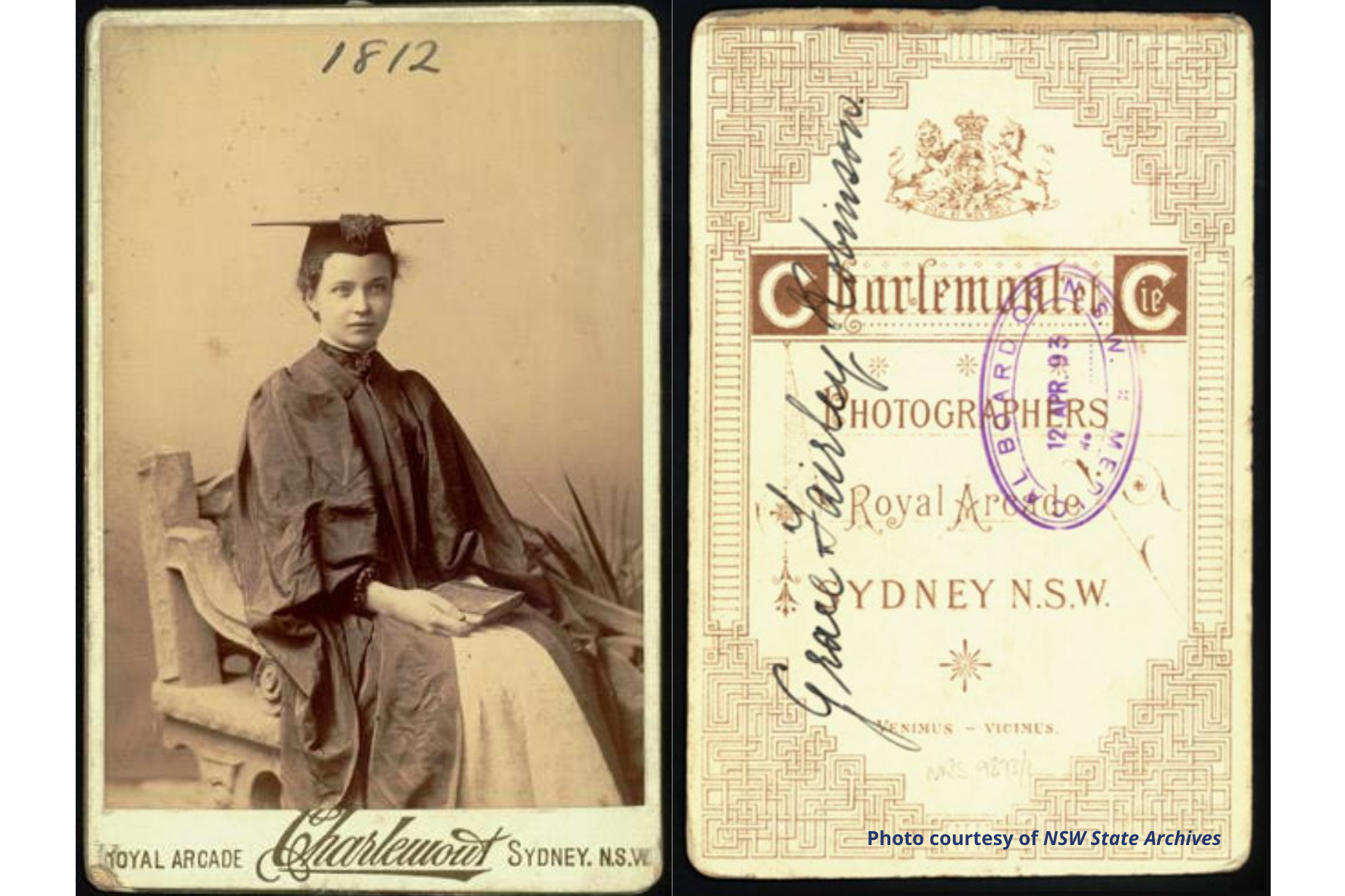Trailblazer and Philanthropist

If you would like to look up to a courageous woman of action, you need to look no further than Grace Boelke (nee Robinson).
Grace was born way back in 1870 in the Sydney suburb that is now known as Stanmore. She graduated from St Vincent’s College in 1887 and then went on to the University of Sydney.
For students today, that may not seem so extraordinary. However, we must remember that in the 1880’s very few girls went to university. But not only did Grace go to university, she graduated in 1893 with a double degree, a Bachelor of Medicine and a Bachelor of Surgery.
Grace won accolades from the university for her work in surgery and midwifery, and was one of the first two female medical graduates from the university.

Despite the many obstacles facing women entering the medical profession in the late nineteenth century, Grace went on to a successful career in medicine, blazing a trail for generations of women to come.
After university, Grace applied for a position at the Sydney Hospital for Sick Children but despite excellent references, she was rejected. Why? Quite simply, because she was a woman! However, she was successful in acquiring a position as a resident medical officer at the Sydney Benevolent Asylum – a position she held for some 15 years. (The Asylum was a philanthropic organisation established in 1818 in George Street caring primarily for poor, abandoned, destitute and sick people).
In the year after her graduation, 1894, Grace married a German-born fellow medical graduate named Paul Boelke, and the couple made a home for themselves in Manly.
Sadly, marrying a man of German background later created an additional hurdle for Grace. For about six years from 1909, Grace held the position of an assistant medical inspecting officer with the Department of Public Instruction. However, the anti-German feeling shown towards her led the State branch of the British Medical Association to question her suitability and she was forced to resign.
In 1912, Grace founded the Professional Women's Association. The aim of this forward-thinking group was to unite professional women to campaign for improvement in the social standing of women. For 13 years from 1913, she was also the convenor of the standing committee on health for the National Council of Women of New South Wales, and she was also a founding member (1921) of the State branch of the League of Nations Union.
In the later part of her career, Grace was employed as Medical Director for the Australian lingerie manufacturer, Berlei. This role involved overseeing the welfare of the company's female workers while also ensuring the "correct anatomical lines for Berlei garments".
Following her husband's death in 1923, Grace travelled abroad and spent her time carrying out vital research into the state of health of women and children.
Grace embodied our College value, Generosity of Spirit. Upon her death, she generously donated her very substantial estate tothe library of the Royal Society of Medicine, London. The bequest was for the benefit of medical research which clearly reflected her lifelong dedication to the advancement of modern medicine.
The entire St Vincent’s College community can be very proud of the contribution that Grace made to the advancement of Australian women.

